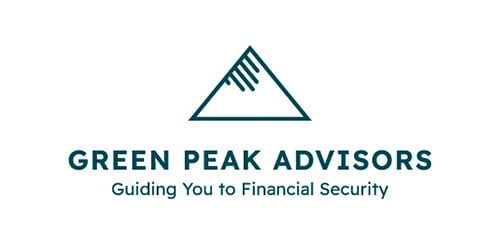
In November 2022, I worked with a client who had made aliyah from England 12 years earlier. He was an independent contractor, running a consulting business in the mental health field back in London while his wife worked at a local hospital. Since he had only spent a short time working in Israel, nearly all their savings and retirement funds remained in England. On top of that, as the primary earner most of his income was still coming in British pounds.
That year, the pound was on a rollercoaster — swinging from over 4.4 to as low as 3.75 and fluctuating wildly in between. Every drop hit their finances hard, not just in terms of monthly income but also the value of their savings when converted to shekels. He admitted to checking his account as often as five times a day, feeling a wave of anxiety each time the numbers shifted. “It’s crazy,” he told me. “I work in mental health and even I’m having mini panic attacks over this!”
I said, “Let’s build a currency exchange strategy: something simple to implement, designed to reduce risk, and, most importantly, give you real peace of mind.”
And that’s exactly what we did. I helped him negotiate better rates with his bank for monthly conversions, gradually moved his funds over to Israel in a structured way, and shifted his investments into a globally diversified portfolio with significant shekel exposure. After we wrapped up the process, I asked him what had been the most valuable part of our work together. His response caught me completely off guard.
I had helped them review their budget, develop a goal-driven investment strategy, optimize their pensions and insurance, and reposition their funds based on their long-term life goals. But what did he appreciate the most? “Honestly,” he said, “your help with currency exchange.”

I just smiled.
That moment reinforced something I’ve seen time and again — managing currency risk is critical for olim. Your country of origin does not matter.
As Americans, most of us have the bulk of our savings pegged to the dollar. Maybe you’ve bought property in Israel, which gives you some shekel exposure, but most retirement and investment accounts remain dollar denominated. And if you’re making aliyah as a retiree, nearly all of your income — pension payments, retirement withdrawals, even Social Security — will be coming in dollars.
For example, if you had been transferring $10,000 per month from Social Security or retirement income over the past year, the amount you received in shekels could have ranged from 35,410 to 38,840 NIS depending on the exchange rate at the time. That’s a significant difference.
So how do you manage this? Here are a few key strategies:
Budget With a Conservative Exchange Rate. When planning your finances, assume a significantly lower exchange rate than today’s rate and incorporate that assumption within your planning. That way, if the dollar weakens, you and your family will still be on solid ground.
Build a Stronger Emergency Fund, in Shekels. This ensures you have a cushion that isn’t subject to currency fluctuations.
Diversify Your Holdings. Explore shekel-based investments where appropriate. If you’re within your 10-year tax holiday, take that into account, but also look for opportunities to spread your currency exposure wisely.
Consider a Global and Shekel-Based Portfolio. While maintaining international investments, having a portion in shekels can provide stability. Be mindful of investment restrictions (such as PFICs) and seek professional guidance.
Finding the Best System. If you’re regularly transferring funds, make sure you’re getting the best rates and minimizing fees. Consider platforms like Interactive Brokers or specialized exchange services that offer competitive terms and fast service.
Optimize Currency Conversions. Instead of converting everything at once, consider transferring larger amounts in dollars and converting to shekels gradually over time. By setting a consistent monthly conversion schedule, you can avoid trying to time the market and benefit from average cost pricing, reducing the impact of short-term currency fluctuations.
For olim, financial security isn’t just about investments — it’s about having a strategy that accounts for the unique challenge of living between two currencies.
And, as we approach Pesach, a chag that celebrates freedom, it’s a perfect time to reflect on financial freedom and long-term planning. Yetziat Mitzrayim is not just about physically leaving a life of slavery; it’s about having true independence, emotionally and mentally, to look forward and build a sustainable future as the am hanivchar.
Thoughtful strategic planning, especially around currency risk, can help ensure that your money works for you, so you’re not constantly worrying about exchange rates and market swings.
This Pesach, as we celebrate our ancestors’ journey from uncertainty to stability, let’s also take steps toward our own financial freedom — one built on thoughtful planning and the ability to focus on what truly matters: family, community and the meaningful life we are building!
Aaron Frolich is the founder of Green Peak Advisors and a Wealth Manager at Equilibrium Wealth. A Certified Financial Planner (CFP) and licensed investment advisor with the Israel Securities Authority, Aaron specializes in cross-border financial planning and investment management. He works closely with Olim to navigate the complexities of managing wealth between the U.S. and Israel, helping clients build secure, goal-driven financial futures.Mobile: +972-54-320-8077 and +1-518-318-3776 Email: aaron@greenpeakadvisors.com Website: www.greenpeakadvisors.com







